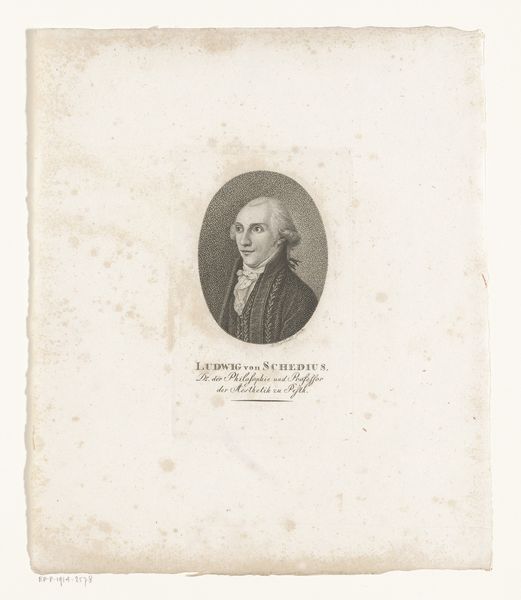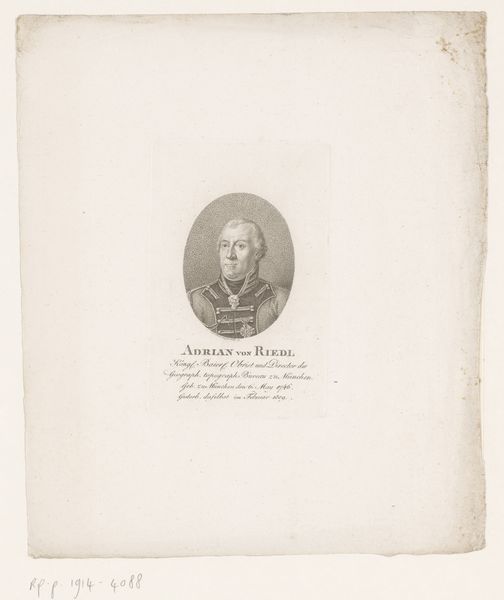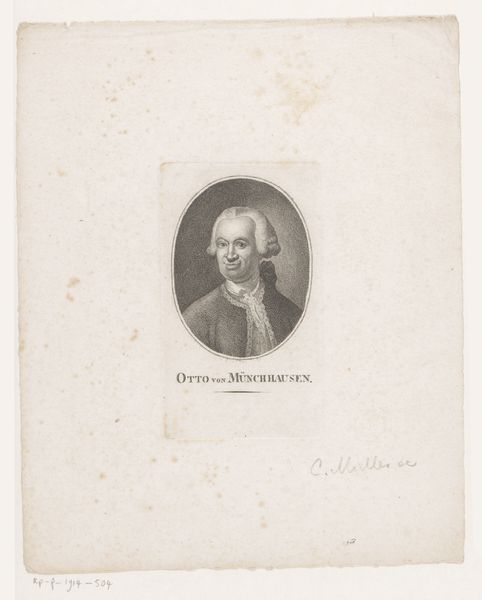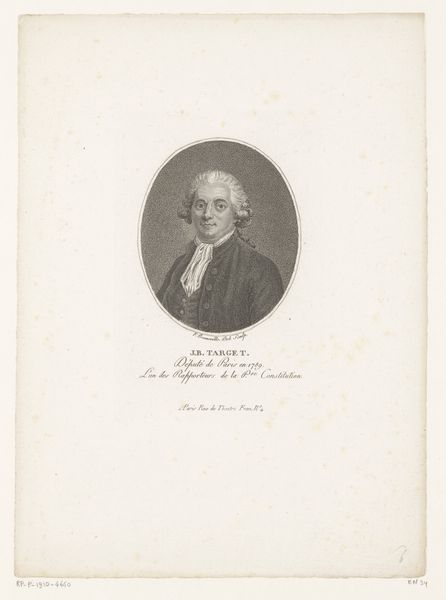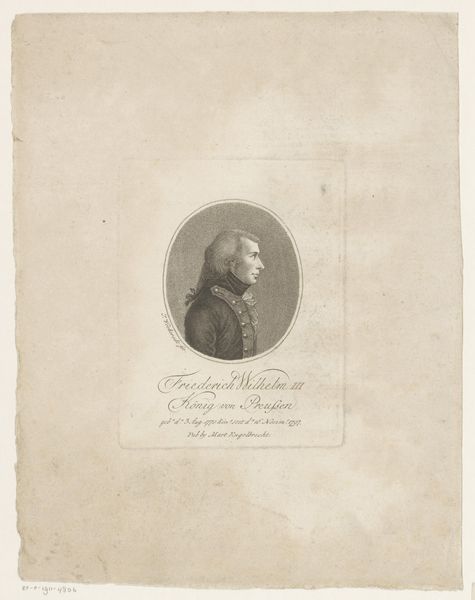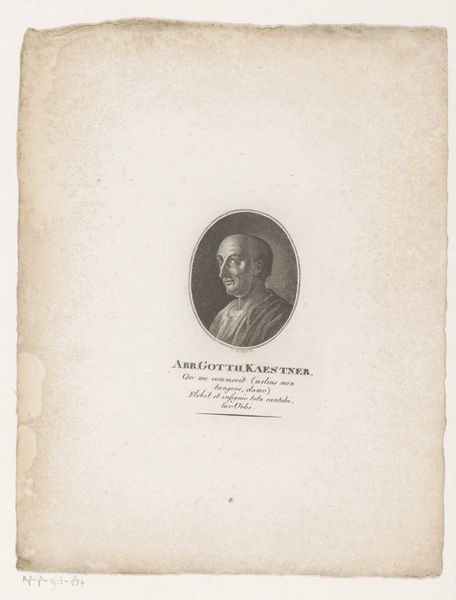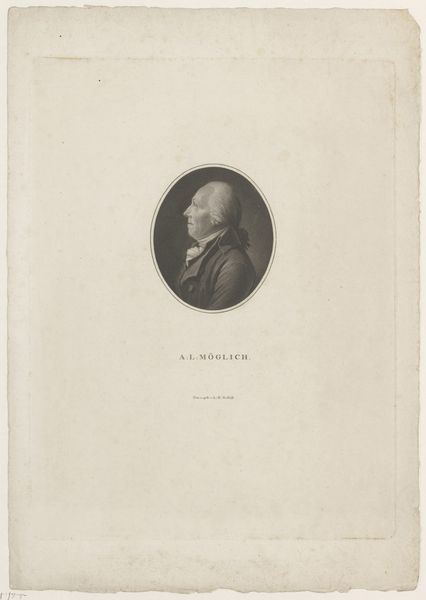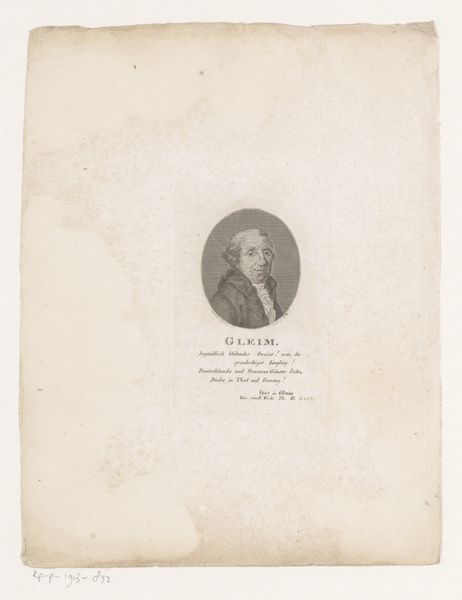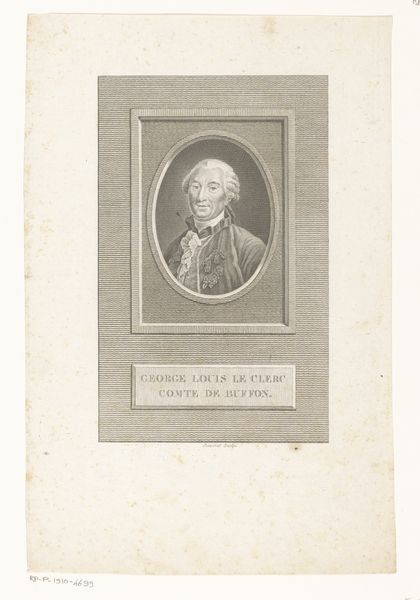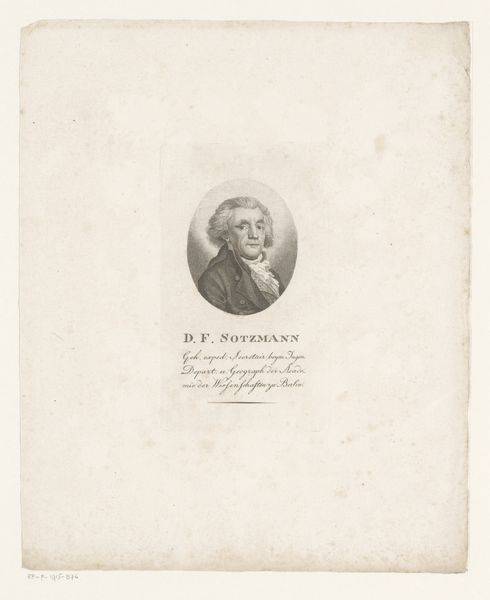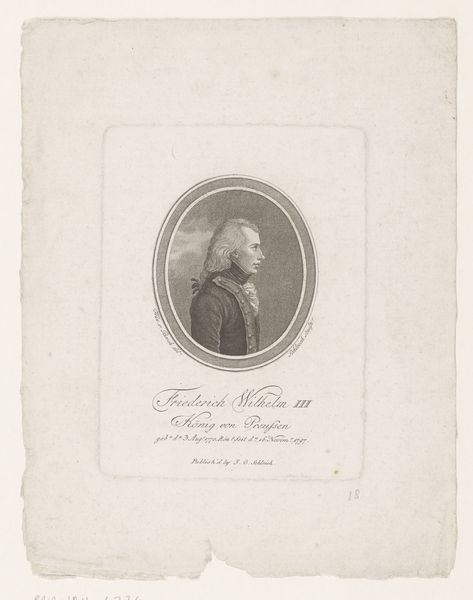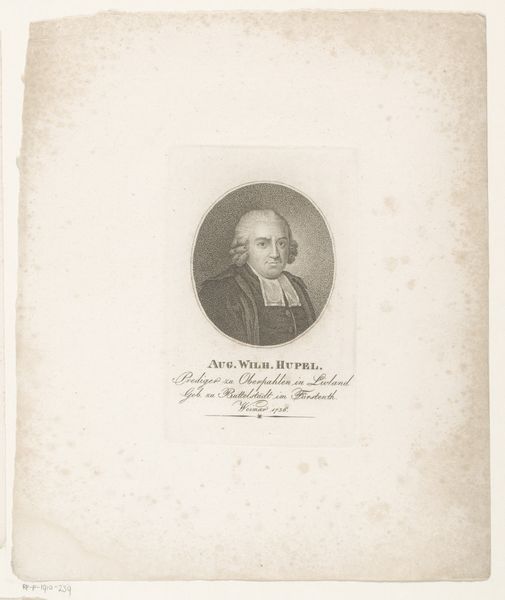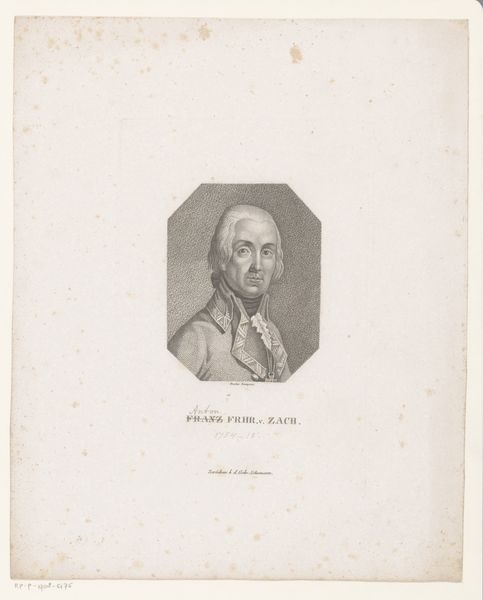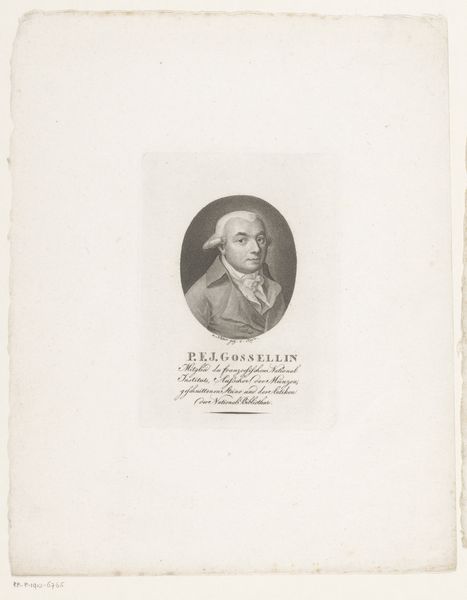
print, engraving
#
portrait
# print
#
academic-art
#
engraving
Dimensions: height 180 mm, width 115 mm
Copyright: Rijks Museum: Open Domain
Curator: This engraving is titled "Portret van Constantine Phipps, baron Mulgrave," attributed to Carl August Schwerdgeburth, and thought to date between 1795 and 1878. It's a delicate academic portrait, meticulously rendered. Editor: My first thought? It's restrained. It feels like a whisper of a person, all soft lines and gentle shading, like a ghost glimpsed in an old library. Curator: Considering Schwerdgeburth's broader body of work, we often see him engaging with the representational norms of power during periods of significant social upheaval. Think about who is portrayed and for whom? What systems are maintained and interrogated? Mulgrave was ennobled—he was a figure of the empire, so to speak. Editor: Absolutely. I suppose the muted tones speak to that almost... calcified sense of nobility? It lacks the bravado of some portraits. It almost feels melancholic, like a reflection on the burdens of position. I can't help but feel a touch of sympathy looking at his pallid face in such simple presentation. Curator: Perhaps it's more than melancholic, but actively interrogative about the performance of aristocracy? Schwerdgeburth and artists of his ilk used print media to engage broad audiences with notions of legitimacy, either upholding or subtly critiquing the social hierarchies they were a part of. It depends on where the audience reads itself into relation to the Lord. Editor: Fascinating. So it's like Schwerdgeburth gives us this image, this character and whispers, "Interpret!"? A very clever little print, if so. I find the visual silence in that presentation quite compelling. I will be turning this character over in my mind all day, I expect. Curator: It pushes us to ask how images perpetuate or contest systems of power and privilege and what our own part is in relation to them. A testament to the portrait's ability to continue its own story over time.
Comments
No comments
Be the first to comment and join the conversation on the ultimate creative platform.
